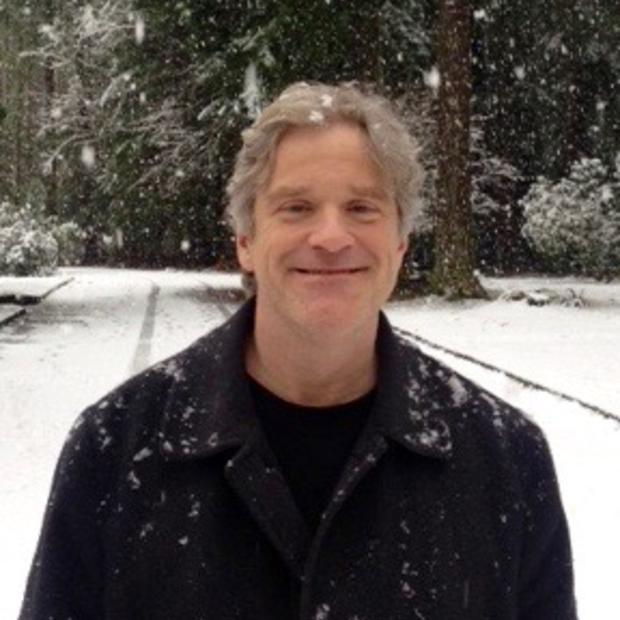Brothers, cousins, shirttail feuders? The Washington-Alaska nexus traces back to the 1897 Klondike Gold Rush and was enshrined forever with Alaska statehood in 1959 (it's much easier to battle the feds when you're a state rather than a territory). The latest Klondike incarnation is North Slope oil drilling, an economic boon that downloads into hundreds of Seattle-area shipyard jobs. In fact, an extractive industry's employment windfall would be cause for ballyhooing and sans dissent if it was, well, still 1959.
"During the last year, some 400 workers at a Harbor Island shipyard have been installing new diesel engines, welding bulkheads, painting and tackling other tasks to prepare the Kulluk, a Shell Oil rig, for drilling holes this summer in the sea bottom off Alaska's North Slope," the Seattle Times' Hal Bernton writes. "The refurbishing of Kulluk and other Shell work done in the Pacific Northwest has pumped some $200 million into the local economy, according to company officials. This could be the launch to what may be a decade of exploration and development of offshore oil fields in Arctic waters."
As Bernton notes, the Inupiat Eskimos are less-than thilled, especially with the potential impact on bowhead whales (which the Inupiat Eskimos eat, by the way. Sorry, Greenpeace.) And yes, Greenpeace also has a vessel moored in Puget Sound and is ready to wage battle. KPLU's Bellamy Pailthorp highlights the juxtaposition, the yin and yang of Northwest sensibilities.
"The Shell Oil Company has two rigs docked here, the Kulluk and the Noble Discoverer. Also in Elliott Bay is the Greenpeace vessel, Esperanza," Pailthorp reports. "As soon as the ice clears, Shell’s rigs will head out for the Arctic. They’ll be the first to conduct exploratory drilling there in more than two decades. Greenpeace plans to shadow them, using submarines."
The challenge with farsighted experiments is that outcomes are always a question mark. The Seattle Weekly's Nina Shapiro focuses on the Seattle Housing Authority's NewHolly development, which was designed to serve as a best practices' model in mixed-income, residential Valhalla (or as close to copasetic as a neighborhood could be). So is the volume of NewHolly short sales a barometer of an anemic real-estate market or an example of an inspired brainstorm gone wrong?
"In 2006, Zac Johnson bought a house in NewHolly, the Beacon Hill housing development created by Seattle Housing Authority as a prototype of mixed-income, multicultural living. He paid $345,000 for a newly constructed four bedroom — which a few months ago he sold for almost exactly half that price," Shapiro writes. "To Johnson, who runs Meaty Johnson's BBQ in Pioneer Square, it seems like home prices have deescalated even more sharply in NewHolly than they have in other parts of the city."
Newspapers provide an essential public service, although the business model is either kaput or on life support. In his Sunday farewell column, the Herald's longtime editorial-page editor, Bob Bolerjack, undelines the media's indispensable role as a watchdog and disseminator of community-relevant news. It's an insightful coda, with a prescription for breathing life back into local media.
"Newspapers and the communities they serve have a symbiotic relationship. A community can't thrive without an effective source of news and information, and a newspaper can't survive without a supportive community," Bolerjack writes. "And a free, independent press can only remain that way if it's privately financed and profitable."
Bolerjack recommends a corrective consistent with a similar observation that the New York Times' Tim Egan floated at a recent Crosscut lunch. "I'm convinced that newspapers can no longer afford to give away their digital content, as most have since they first launched websites. Communities that value local news need to be willing to pay something for it — as they have for years with print subscriptions," Bolerjack writes.
Lastly, is the FBI snooping on Portland-area Muslims? Catch-22 author Joseph Heller said it best, "Just because you're paranoid doesn't mean they aren't after you." As the Oregonian's Helen Jung writes, "At Masjed As-Saber, Oregon's largest mosque, the people sense that God isn't the only one scrutinizing their spirituality. In the past two years, the FBI has placed at least five men with affiliations to the mosque, including its longtime religious leader, on the nation's no-fly list, a roster of suspected terrorists barred from flying in the United States. None has been charged with a terrorism-related offense, and federal officials haven't told them why they're on the list."
Link Summary
Seattle Times, 'Black gold' rush? Seattle has stake in quest for Alaska oil"
KPLU, "Greenpeace vs. Shell: Dueling vessels head for Arctic from Seattle"
Seattle Weekly, "NewHolly Resident sees rash of short sales; have fortunes dimmed for Utopian dream?"
The Herald, "Departing thoughts on newspapers, communities"

